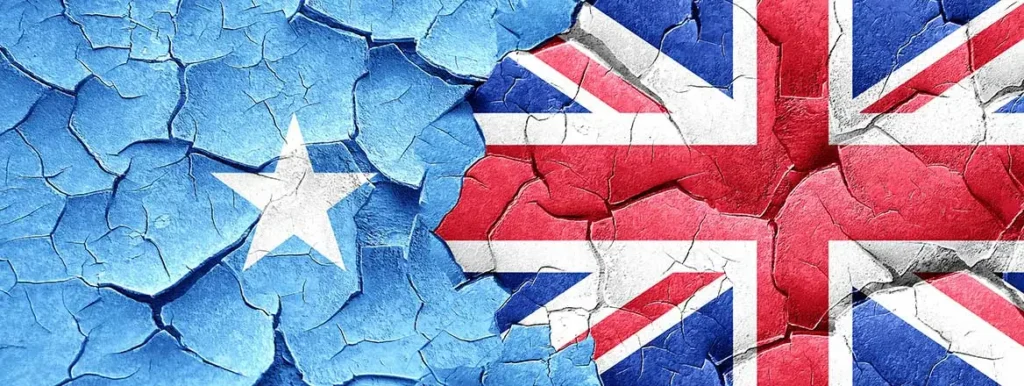According to a UK Department for Business and Trade factsheet released on September 19, 2025, total UK and Somalia Trade in goods and services reached £72 million in the four quarters leading up to Q1 2025.
A remarkable 75.6% increase from the previous year.
The growth, however, is largely driven by a surge in British exports to Somalia, which jumped 144% to £61 million, while Somali exports to the UK fell 31.3% to £11 million, resulting in a UK trade surplus of £50 million.
UK and Somalia Trade: Growing Opportunities for Development
The sharp rise in UK exports reflects a growing Somali market eager for foreign goods that support reconstruction and development.
Britain’s exports include scientific instruments, pharmaceuticals, and manufactured goods that play a vital role in strengthening Somalia’s healthcare system and infrastructure.
This trend highlights Somalia’s increasing ability to absorb and utilize advanced capital goods — a positive indicator for long-term stability and modernization.
Decline in Somali Exports
However, the decline in Somali exports to the UK exposes a structural imbalance.
Somalia’s traditional export sectors — such as livestock, fisheries, and frankincense — have yet to gain substantial access to British markets.
Expanding these sectors could generate foreign currency, create jobs, and transform Somalia’s economy from one reliant on imports into a more self-sufficient and competitive exporter.
Read also: Somali National Army and AU Forces Liberate 2 New Villages
Investment Gap and Structural Challenges
Despite growing trade volumes, foreign direct investment (FDI) between the UK and Somalia remains minimal, amounting to less than £500,000 by the end of 2023.
This lack of investment limits Somalia’s capacity to develop industries that could strengthen its export base and reduce dependency on imports.
The low FDI levels reflect lingering investor concerns about Somalia’s business climate, infrastructure, and financial systems.
Will Somalia Economy Get Stronger?
To address this, Somalia must focus on creating a secure and predictable business environment by improving legal frameworks, protecting property rights, and developing a reliable banking system.
These reforms are key to attracting foreign investors and fostering economic resilience.
How Can the UK Support the Somali Economy?
For its part, the UK has an opportunity to support Somalia’s economic diversification by providing technical assistance, facilitating market access, and investing in small and medium-sized enterprises (SMEs) within agriculture and fishing sectors.
Strengthening these industries would allow Somali producers to meet international standards and compete globally.
In essence, while the sharp rise in trade is a welcome development, it represents only the beginning of a longer journey toward a sustainable partnership.
UK and Somalia Trade to Create A Balance
A balanced, two-way flow of trade and investment — grounded in mutual benefit and trust — is essential for ensuring lasting economic growth.
By shifting focus from dependency to collaboration, UK and Somalia Trade relationship can transform into a model of shared prosperity, supporting Somalia’s long-term stability and self-reliance while opening new markets for British enterprise.








